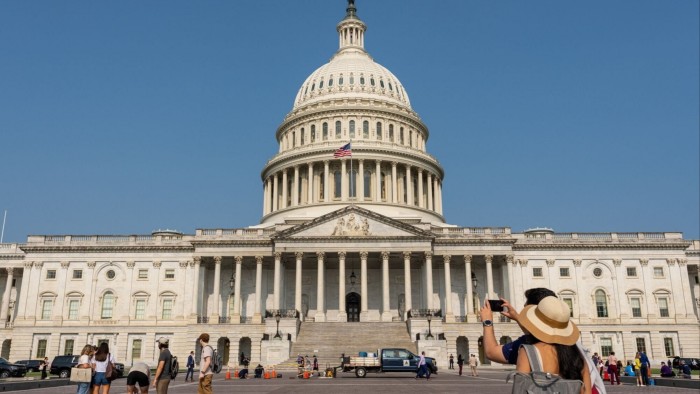Unlock the White House Watch newsletter for free
Your guide to what Trump’s second term means for Washington, business and the world
Donald Trump’s landmark tax bill would make the most prosperous Americans $12,000 richer each year, while wiping $1,600 off the disposable income of the nation’s poorest, Congress’s fiscal watchdog said on Thursday.
Trump’s “one big beautiful bill” narrowly passed the House of Representatives last month, extending tax cuts introduced during the US president’s first term in the White House in 2017.
The Congressional Budget Office said in a letter that the top 10 per cent of Americans by income would, on average, see their resources rise by $12,000 a year, or 2.3 per cent of their projected income, should Trump’s “one big beautiful bill” pass the Senate in broadly the same form that it passed the House.
“The changes would not be evenly distributed among households,” said CBO director Phillip Swagel in the letter addressed to Democrat lawmakers Brendan Boyle and Hakeem Jeffries, who had requested the analysis.
“The agency estimates that, in general, resources would decrease for households towards the bottom of the income distribution, whereas resources would increase for households in the middle and the top of the income distribution.”
The bill is being pored over by Republican senators, who are expected to make changes before bringing it to a vote. Trump has set a deadline of July 4 for a final version of the bill to reach his desk to be signed into law.
Some lawmakers have described that timeline as optimistic, given the number of concerns raised by members of Congress in both chambers — including over what the plans would do to benefits such as Medicaid healthcare support for disabled and low-income Americans, and the Snap food stamps.
The CBO, which previously said that the bill would remove healthcare insurance for 16mn Americans, said the poorest 10 per cent would see their resources fall by $1,600 a year, or 3.9 per cent of their income, compared with previous estimates by the fiscal watchdog.
The bill has also stirred controversy over independent estimates that the tax cuts will stretch the US’s federal deficit, which stood at 6.4 per cent last year, and add to the national debt.
In the Senate, several fiscal hawks have raised concerns about the size and scope of the legislation. Republican senator Ron Johnson told the Financial Times this week that “there are plenty of senators that are concerned about this”.
Republicans control the Senate by a 53-47 margin, meaning Trump’s party can afford to lose only a handful of votes if the bill is to pass by a simple majority.
The CBO said last week that the bill would add $2.4tn to US debt by 2034.
The White House has denied the claims, citing research by the president’s Council of Economic Advisers that the bill would cut $1.6tn off the national debt over the next decade.







